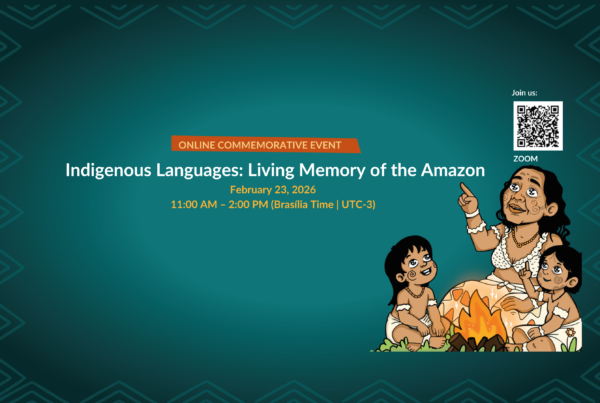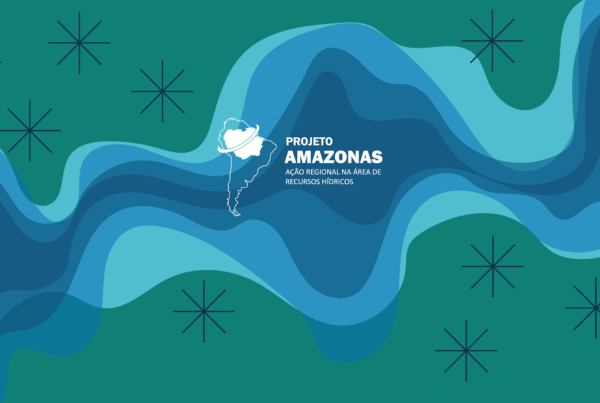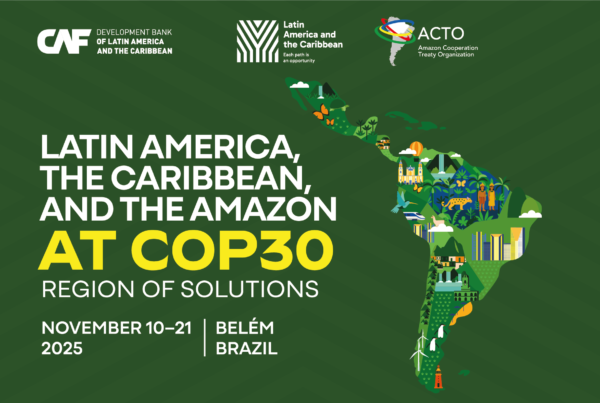Round Table is a permanent space for inter-administrative coordination between the government and the associations of indigenous traditional authorities – AATI’s and associations of indigenous councils.
The activities of the Contingency Plan for the Protection of Health in Vulnerable Indigenous Peoples and in Initial Contact were presented during the “XXXVI Session of the Permanent Bureau of Inter-administrative Coordination (MPCI)”, between the departmental government and the Associations of Traditional Authorities, Indigenous and/or Associations of Indigenous Councils – AATI’S of the Department of Amazonas, during the 11th day of December, in the city of Leticia, Colombia.
The Components of the project were explained by the ACTO’s consultant, Lyli Chindo and by the researcher of the Oswaldo Cruz Foundation of Brazil, Roberta Cerri, making up the ACTO team that is on mission for the project in Leticia.
In addition, the ACTO team presented the achievements so far of the situational health study of the triple borders Brazil, Colombia and Peru. It also conducted a dialogue with indigenous representatives of 14 peoples and 4 councils and the main contributions were on the political, territorial and intercultural context and on possible mechanisms of articulation from the AATIs with ACTO in the framework of the Contingency Plan project.
Following up on the work agenda, the mission met with the director of Ethnic Affairs of the Government of the Department of Amazonas who recommended that the area of the situational health study be expanded to include all non-municipalized areas of the department of Amazonas. He also highlighted the updating of the anthropological context, from the voice of the indigenous peoples and the importance of articulating the work of ACTO with the Intercultural Commission of the PIACI in order to generate a channel of communication and articulation from the government.
The session began with the autonomous space of indigenous representatives in which, they developed dialogues and individual work tables with some institutions such as the Health Authority of the Department of Amazonas, the Directorate of Ethnic Affairs and ACTO.
In this space it was possible to dialogue with some of the teams of the Intercultural Health Commission of the Amazon who provided relevant information that serves to adjust and complement some of the results obtained so far in the study.
It is important to note that the recommendations of the intercultural health commission will make it possible to establish the appropriate guidelines for contingency plans from a sociocultural perspective, and from the institutional vision of the government and indigenous representatives.
The data collected in this and other dialogues with the different participants will be presented in more detail in the final version of the report that is the subject of the consultancy.
ACTO’s Mission in Leticia
The mission in Leticia had as its main interest in the consolidation of shares of regional cooperation of the different actors in the border area (Leticia, Amazonas) that allow feedback and strengthen the content of the Study of the health situation with a territorial basis, the Amazon Cooperation Treaty Organization, with the aim of improving the knowledge about the health situation of the Indigenous Peoples of the Amazon Region of Colombia, as well as to identify the capabilities of response of health systems to address future outbreaks , epidemics or pandemics such as COVID 19, and in this way contribute to the formulation of a contingency Plan in Health for Vulnerable Indigenous Peoples and in Initial Contact” in the region of the Triple Border Alto Solimões-Brazil/Loreto-Peru/Putumayo, Amazonas Colombia.



